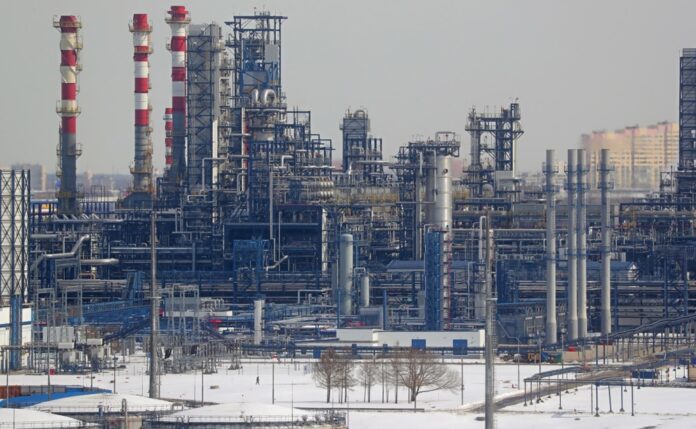Rising Sanctions Create Oil Market Disruptions
Chinese refiners are facing serious challenges in purchasing Russian ESPO crude oil due to newly imposed U.S. sanctions. These sanctions have made it increasingly difficult to transport Russian oil to China, driving up costs and complicating logistics. As a result, refiners in China have temporarily halted purchases, despite being one of the biggest buyers of Russian crude in 2024.
The U.S. sanctions, announced in January, targeted major Russian oil companies, shipping firms, and insurance providers. This move was aimed at restricting Russia’s ability to export oil, which serves as a crucial financial resource for its economy. With these new restrictions in place, oil shipments have become significantly more expensive and difficult to arrange.
Before the sanctions, delivering Russian crude to China cost around $1.5 million per shipment. However, by the end of January, this cost had surged fivefold to $7 million. The sharp rise in expenses made Russian oil less attractive to Chinese refiners, forcing them to seek alternative suppliers in the Middle East, Africa, and the Americas.
Even though ESPO crude is considered a high-quality oil and remains in demand in Asia, the added logistical and financial burdens are discouraging buyers. Normally, ESPO crude trades at a premium compared to other Russian oil types like Urals, but the current situation has forced sellers to offer steep discounts.
Sanctions Impact ESPO Crude Prices
The price of ESPO crude oil is directly affected by the U.S. sanctions. Before the restrictions, ESPO crude shipments from Russia’s Far Eastern port of Kozmino were sold at a premium of over $5 per barrel compared to Brent crude. However, with the new trade difficulties, the premium has now dropped to $2–$3 per barrel.
Russian oil companies are trying to find ways to keep ESPO crude moving in the market. Oil shipments transported on non-sanctioned tankers and set for loading in March are still being sold at a slight premium to Brent. However, shipments that involve sanctioned tankers are being offered at even steeper discounts, as buyers factor in the risks of violating U.S. restrictions.
Despite these lower prices, many Chinese refiners remain hesitant to sign contracts for February deliveries. The concern is not just about price but also about the potential consequences of dealing with restricted oil. Many refiners are carefully evaluating the risks, as getting involved in sanctioned shipments could lead to penalties or complications with financial transactions.
Some oil traders are considering using alternative oil terminals or unloading shipments outside China’s Shandong province before transferring them to other tankers. This would make tracking these shipments more difficult and potentially allow ESPO crude to keep flowing despite sanctions. However, such methods also increase costs and add another layer of complexity to the supply chain. Many refiners, already dealing with higher fuel and freight expenses, may not be able to afford these additional logistical challenges.
China-Russia Oil Trade Faces More Barriers
China and Russia have strengthened economic ties in recent years, particularly since the beginning of Moscow’s full-scale invasion of Ukraine. China has denied accusations of directly supporting Russia’s military actions, but it has continued purchasing Russian oil and gas.
However, the latest sanctions are making it increasingly difficult for Chinese companies to maintain their energy trade with Russia. Many Chinese financial institutions are now scaling back their dealings with Russian firms, fearing secondary sanctions that could impact their access to global financial markets.
Russia’s economy relies heavily on fossil fuel exports, which serve as a key financial resource for its ongoing war. The new restrictions are adding pressure on Moscow’s ability to sell its crude oil and maintain revenue streams. At the same time, Chinese refiners are being forced to navigate a more complex legal and logistical environment to avoid penalties.
As sanctions tighten, the oil trade between Russia and China is facing mounting difficulties. Although ESPO crude remains available at discounted rates, the rising costs, risks, and logistical barriers are making it more challenging for Chinese refiners to continue purchasing large volumes.


